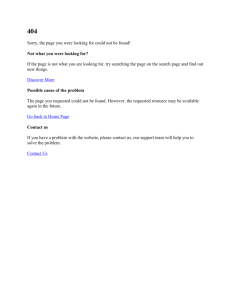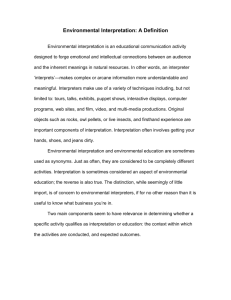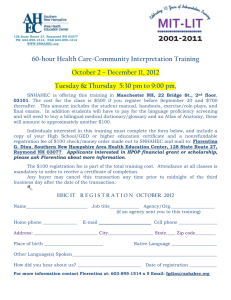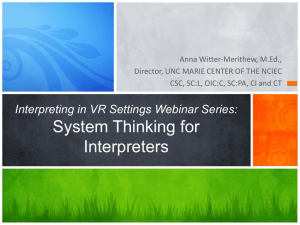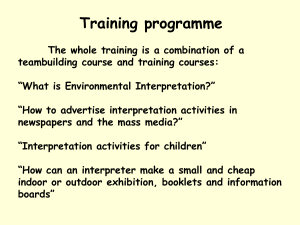ACCESSIBILITY GUIDELINES FOR SPEAKERS
advertisement
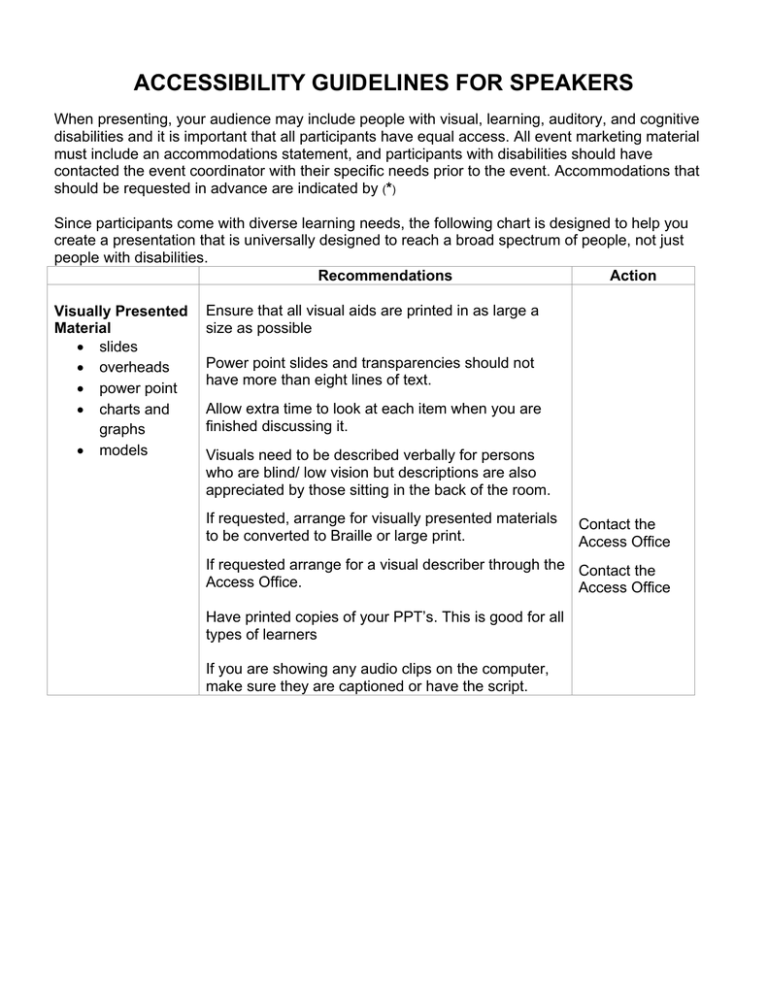
ACCESSIBILITY GUIDELINES FOR SPEAKERS When presenting, your audience may include people with visual, learning, auditory, and cognitive disabilities and it is important that all participants have equal access. All event marketing material must include an accommodations statement, and participants with disabilities should have contacted the event coordinator with their specific needs prior to the event. Accommodations that should be requested in advance are indicated by (*) Since participants come with diverse learning needs, the following chart is designed to help you create a presentation that is universally designed to reach a broad spectrum of people, not just people with disabilities. Recommendations Action Visually Presented Material • slides • overheads • power point • charts and graphs • models Ensure that all visual aids are printed in as large a size as possible Power point slides and transparencies should not have more than eight lines of text. Allow extra time to look at each item when you are finished discussing it. Visuals need to be described verbally for persons who are blind/ low vision but descriptions are also appreciated by those sitting in the back of the room. If requested, arrange for visually presented materials to be converted to Braille or large print. Contact the Access Office If requested arrange for a visual describer through the Contact the Access Office. Access Office Have printed copies of your PPT’s. This is good for all types of learners If you are showing any audio clips on the computer, make sure they are captioned or have the script. Recommendations Films and Videos Use captioned films and videotapes, if possible. This should be done even if not requested. You never know when you might have an elderly participant with some hearing loss or a student who uses English as a 2nd language. Action Contact Media Services. If time permits, have the college caption the media. If the material is purchased by the college they will caption it. If it is your personal media, you can ask the college to buy a captioned version. If unable to obtain captioned materials, please try to obtain a text copy of the script so that it may be provided to the interpreter and participant in advance. If requested by a blind/low vision participant, arrange for a visual describer. Verbally Presented Material Contact the Access Office Use the amplification system provided. Face the audience when you speak and avoid putting your hands over your mouth so that those who lip read can understand you. Repeat all questions into the microphone before answering them if a microphone is not available to the audience. Ensure that only one audience member speaks at a time. Spell unusual terms, names, and foreign words. If requested, arrange for sign language interpreters or FM systems. Contact the Access Office Provide an advance copy of your speech or notes to be converted to Braille or large print or to give to interpreters or participants with hearing impairments. Contact the Access Office Recommendations Sign Language Interpreters If requested, arrange for a sign language interpreter. Ensure that the interpreter can be seen when lights are dimmed. Action Contact the Access Office Do not walk in front of interpreters while they are signing. If you are a rapid speaker, pause for a moment at natural breaks in your speech, such as the end of a slide or paragraph. People using interpreters cannot examine items when they are watching the interpreter so give them some time to look at slides or visual materials. Speak directly to the person, not to the interpreter, when addressing a person using an interpreter Spell unusual terms, names, and foreign words. Handout Material Advise the Access Office if you plan to divide your audience into smaller groups for certain activities. (Additional interpreters may be needed to avoid having all participants using interpreters in “segregated” groups.) Contact the Access Office If requested, provide handout materials for your presentation in advance (on disk) so that they can be converted to alternate format(s), e.g., Braille, audio tape, large print or computer disk, as necessary. Contact the Access Office Excerpted from Kailes, June Isaacson & Darrell Jones. (1993). A Guide to Planning Accessible Meetings. Houston, Texas: Independent Living Research Utilization at TIRR. Used with permission.
